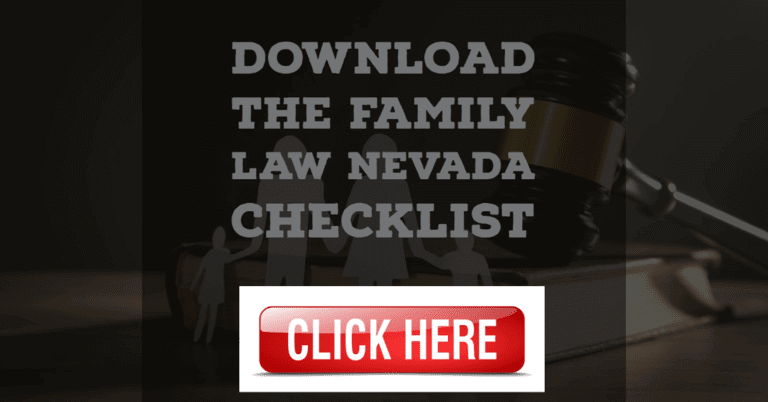Estate planning is a critical process that allows you to protect your assets.
It also helps you provide for your loved ones. Estate planning will make sure your wishes are fulfilled after you pass away.
Some of the wealthiest and most successful people have made costly mistakes. This can lead to long and complicated legal battles for their heirs.
You can learn from their mistakes. This post explores steps to avoid similar issues in our own estate planning.
Here are five common estate planning mistakes to avoid. These are based on lessons learned from recent, most notorious estate battles.

Failing to Update Your Estate Plan
One of the most common estate planning mistakes is needing to update your estate plan regularly.
Failing to update an estate plan after major life events can lead to costly disputes and legal battles.
For example, actor Philip Seymour Hoffman passed away in 2014. His estate plan had not been updated in over a decade. As a result, his estate plan did not reflect his current wishes. It led to disputes over the distribution of his assets.
Keep your estate plan up to date to avoid this mistake. Do this after significant life events. If you get married, you should update your estate. If you have children, you should update the plan. Death in the family or divorce should also be a reason to update your plan.
Not Having a Will
Another common estate planning mistake is when you do not have a will in place. Your assets are distributed according to state law if you do not have a will. This may not reflect your wishes or the needs of your loved ones.
This happened in the case of Prince. Prince passed away in 2016 without a will. This caused a long and complicated legal battle over his estate.
To avoid this mistake, create a will that clearly outlines your wishes. Explain how you want your assets distributed after you pass away.
Failing to Consider Taxes
Taxes can seriously impact the distribution of your estate after you pass away. Failing to consider tax implications can lead to costly mistakes in estate planning.
For example, the estate of businessman Howard Hughes was subject to a long and expensive legal battle over estate tax issues after his death.
To avoid this mistake, consult with a tax professional or estate planning attorney. They can help ensure your estate plan considers any tax implications.
Neglecting to Name Beneficiaries
Naming beneficiaries is a critical part of estate planning. Many mistakes can be made if not done right. If you don’t name beneficiaries, disputes over the distribution of assets can arise. This can happen if you don’t keep your beneficiaries updated too.
This was the case in the estate battle of actor Heath Ledger, who had failed to update his beneficiary designations after the birth of his daughter.
Name beneficiaries for all your accounts and assets. Update these designations regularly.
Choosing the Wrong Executors or Trustees

Choosing the wrong executors or trustees can also lead to costly mistakes in estate planning.
For example, in the case of singer Aretha Franklin, her estate plan named her niece as the executor. This caused a lengthy legal battle between her heirs and the niece over the distribution of her assets.
To avoid this mistake, choose executors and trustees who are trustworthy. Select people who are responsible and capable of carrying out your wishes.
Conclusion
Estate planning is an essential process that can help you protect your assets.
It can provide for your loved ones, and ensure that your wishes are fulfilled after you pass away.
Learn from the mistakes of high-profile cases. Avoid common estate planning mistakes and create plans that reflect your wishes.
Further Reading
Our esteemed lead attorney, Molly Rosenblum, Esq., has diligently prepared a collection of valuable resources to assist you in your estate planning needs. These resources, available on the Rosenblum Law website, are expertly designed to guide you through the intricacies of estate planning, offering you support and clarity in your planning process. Here’s a summary of these invaluable resources:
Las Vegas Estate Planning Attorney: Explore a comprehensive guide that provides expert knowledge and insights into estate planning specific to Las Vegas. Explore the guide.
Las Vegas Trust Attorney: Gain specialized guidance on trust formation and management, ensuring your assets are handled according to your intentions. Learn more.
Tips On Estate Planning: Find practical tips and strategies to streamline your estate planning process, ensuring a thorough and effective plan. Read the tips.
Estate Planning Checklist: Utilize this comprehensive checklist to ensure all critical steps in your estate planning are covered. Check your progress.
Making a Will: Understand the importance and process of making a will, a fundamental component of estate planning. Start drafting your will.
Estate Planning Services: Explore the range of estate planning services offered, tailored to meet your unique needs and circumstances. View the services.
Estate Planning Probate: Delve into insights about the probate process and how effective estate planning can simplify or circumvent this often complex procedure. Understand probate processes.
Molly Rosenblum, Esq. is committed to providing you with the resources and knowledge necessary for successful estate planning. These resources are designed to empower you with the information and tools needed to make informed decisions about your estate. We encourage you to utilize these resources to ensure your estate planning is as comprehensive and informed as possible.

Offsite Resources You May Find Helpful
Nevada Legal Services – Estate Planning: This non-profit organization offers free legal services to eligible low-income residents and seniors in Nevada, including assistance with estate planning.
American Bar Association – Estate Planning FAQs: This resource provides a comprehensive set of FAQs that address many of the common questions and concerns about estate planning.
Internal Revenue Service – Estate and Gift Taxes: The IRS’s official page provides information on estate and gift taxes, which could be a crucial aspect of estate planning.
Investopedia – Estate Planning Basics: Investopedia offers a basic guide to estate planning, including an explanation of key terms and concepts.
Nolo – Estate Planning Basics: Nolo, a well-known resource for legal information, provides a comprehensive overview of estate planning, including how to get started and common pitfalls to avoid.

What Next?
Estate planning mistakes can hurt your future.
If you’re hailing from Nevada, The Rosenblum Allen Law Firm is here to help end the headache and hassle of planning your estate.
With our experienced Las Vegas Estate Planning Attorneys, you’ll know that your estate will be organized and secure.
Don’t let these mistakes cause unnecessary hardship: call (702) 433-2889 today and get the peace of mind you deserve.

Frequently Asked Questions
Why is estate planning important for single individuals?
Estate planning is crucial for single people too. It allows you to designate beneficiaries, make medical decisions in advance, and manage your assets according to your preferences, ensuring your wishes are followed in case of incapacitation or passing.
What exactly is a Power of Attorney?
A Power of Attorney is a legal document granting someone else the authority to act on your behalf in various matters, such as financial decisions, medical choices, or legal matters, in case you cannot make those decisions yourself.
Is it possible to plan ahead for medical decisions if I am incapacitated?
Absolutely. You can create a health care directive or appoint a health care proxy, which allows you to specify your medical preferences and designate a trusted person to make medical decisions on your behalf when you cannot do so.
What happens to my minor children if something happens to me?
You can appoint a guardian for your minor children by including provisions in your estate plan. This ensures that someone you trust will take care of their well-being and handle their financial affairs until they reach adulthood.
What does “durable” mean in a power of attorney context?
A “durable” power of attorney remains valid even if you become mentally incapacitated. It grants your chosen agent the authority to act in such situations, ensuring your affairs are appropriately managed.
How does a financial power of attorney work?
With a financial power of attorney, you authorize someone to manage your financial matters, including handling bank accounts, paying bills, managing investments, and conducting other financial transactions on your behalf when you cannot do so.
What is a revocable trust, and why should I consider one?
A revocable trust is a flexible legal arrangement that allows you to manage your assets during your lifetime and distribute them to beneficiaries after your passing without going through probate. It provides privacy and control over your estate.
What is a health care directive?
A health care directive, also known as a living will or advance directive, is a legal document that outlines your medical treatment preferences and instructions. It guides healthcare providers and your appointed healthcare agent in making medical decisions on your behalf if you cannot communicate.
Can I include my bank accounts in my estate plan?
Yes, you can include bank accounts in your estate plan. Proper estate planning ensures that your bank accounts are handled according to your wishes and allocated to your beneficiaries in a streamlined manner.
Should I involve my adult children in my estate planning?
Involving your adult children in estate planning can be beneficial, especially if they are designated beneficiaries or involved in making vital medical or financial decisions on your behalf.
How can life insurance be incorporated into estate planning?
Life insurance can be a valuable tool in estate planning to provide financial support to your loved ones after death. The proceeds can help cover expenses and debts or provide an inheritance for your beneficiaries.
How can I ensure my financial decisions are managed as I want if I become incapacitated?
By creating a durable financial power of attorney, you can appoint a trusted person to manage your financial affairs and ensure that your financial decisions align with your preferences and objectives.
What happens to my real estate after I pass away?
Through estate planning, you can designate how your real estate will be distributed after your death, ensuring that your property is efficiently transferred to the intended beneficiaries.
What is a health care proxy?
A healthcare proxy is a legal document that appoints someone as your representative to make medical decisions if you cannot do so due to incapacitation or other circumstances.
Why do married couples need estate planning?
Even married couples need estate planning to establish how their assets will be distributed, name guardians for minor children, designate beneficiaries, and plan for potential medical and financial situations that may arise.
Can I include my investment accounts in my estate plan?
Yes, investment accounts can be included in your estate plan. Proper planning ensures your investment assets are managed and distributed according to your wishes.
What is a successor trustee, and why is it important to designate one?
A successor trustee is a person or entity appointed to manage and distribute the assets held in a trust after the original trustee can no longer do so. Designating a successor trustee ensures a seamless transition and proper management of your trust.
How can I ensure my preferred medical treatment is followed if I am unable to communicate?
By creating a health care directive or appointing a health care proxy, you can outline your medical treatment preferences and designate someone to make medical decisions according to your wishes.
What should I do with my financial assets in my estate plan?
In your estate plan, you can outline how your financial assets should be managed and distributed, ensuring that they are passed on to your chosen beneficiaries or causes that align with your intentions.



